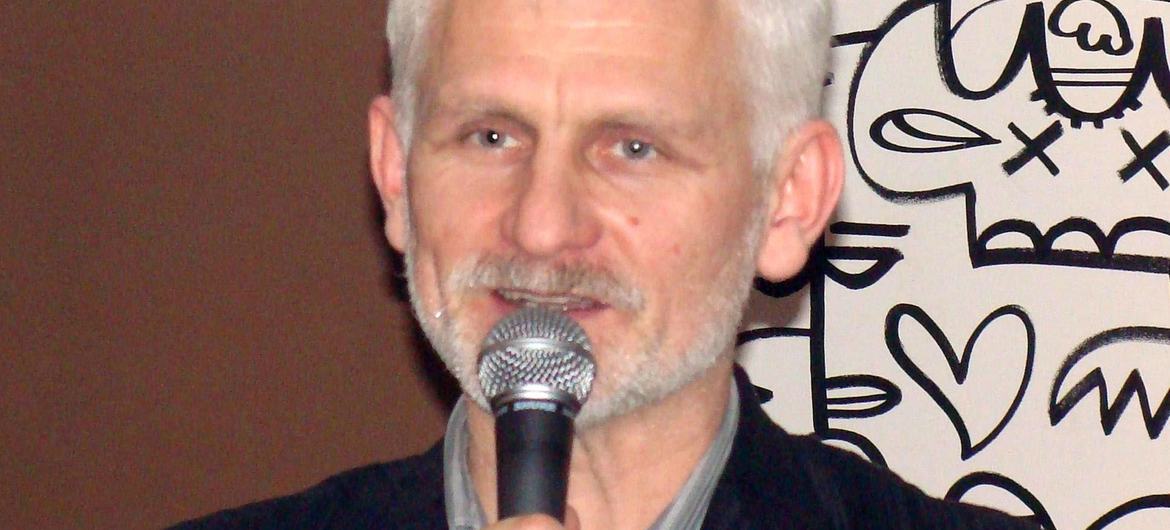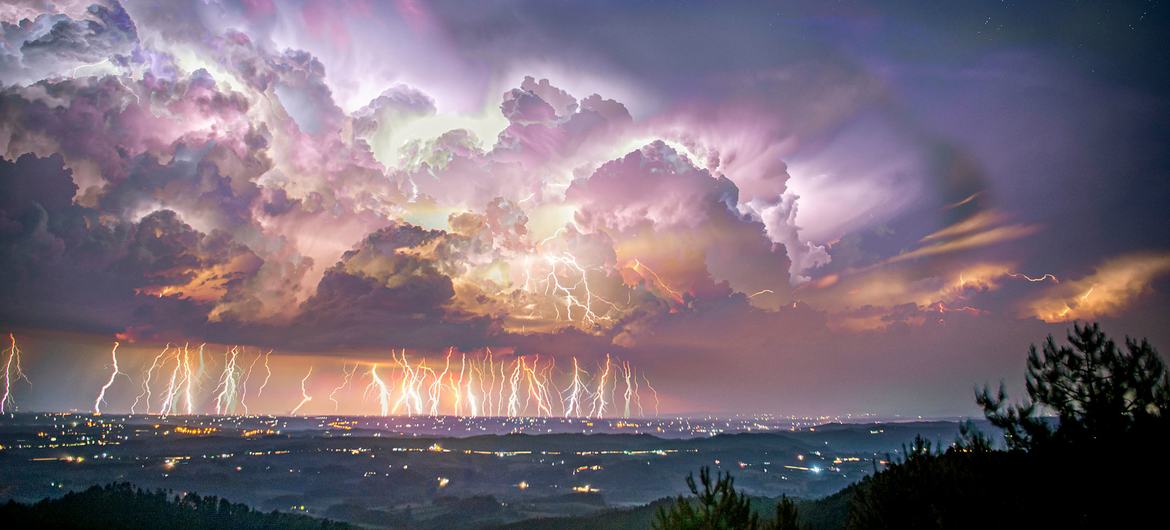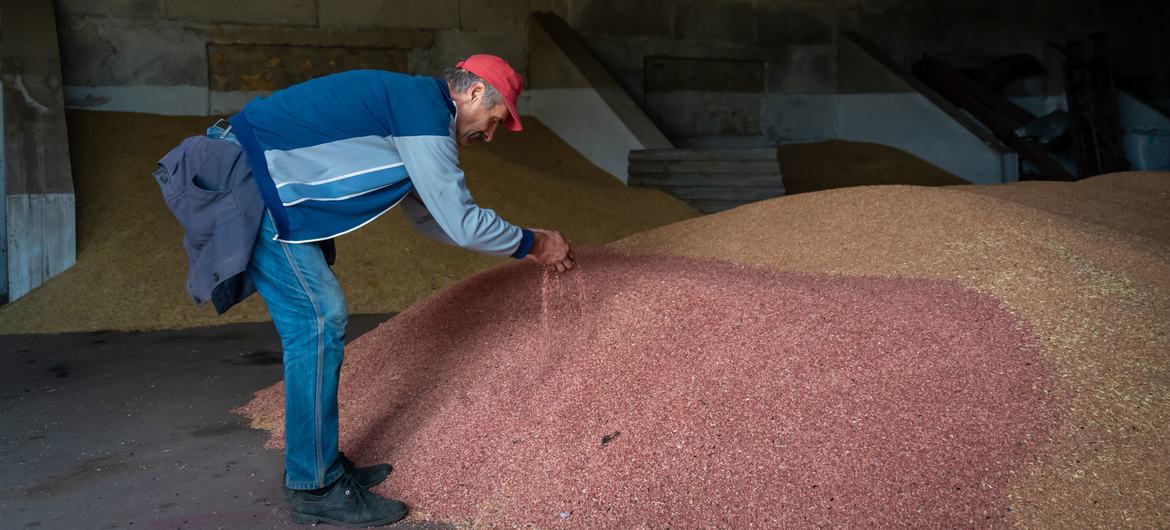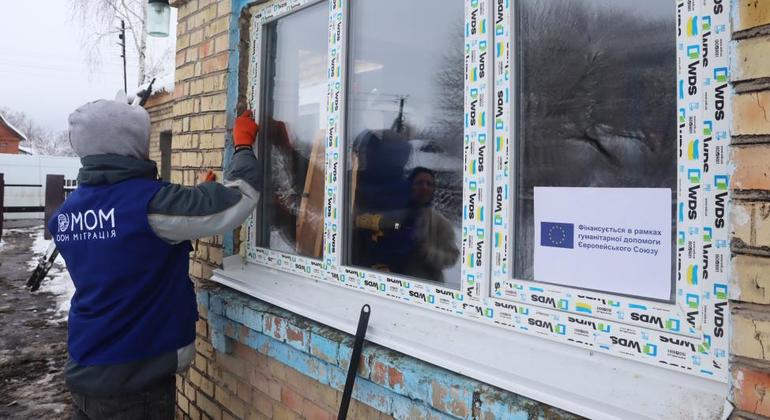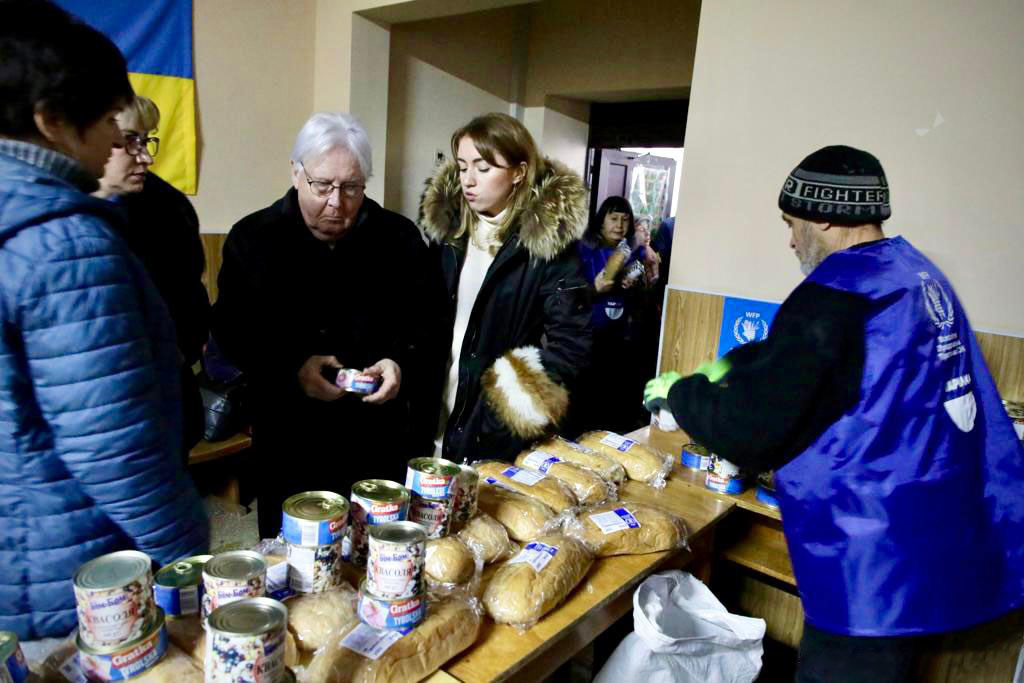
Rights experts urge UK to redraft controversial Northern Ireland bill
The Northern Ireland Troubles (Legacy and Reconciliation) Bill was introduced in Parliament in May and passed a second reading in the House of Lords last month. Further review is set to take place in January. Little access to remedy The UN experts are concerned […]
HQ Report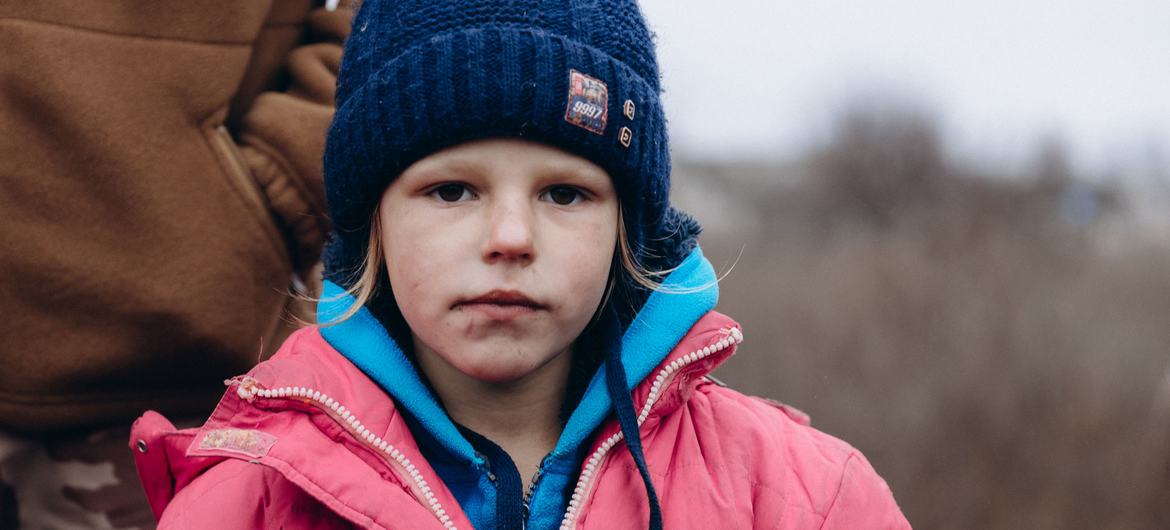
Ukraine: Winter’s downward spiral documented by UN agencies
The findings revealed that one in every four of the 5,200 respondents had reduced or stopped agricultural production because of the conflict. “The report indicates that 25 per cent of the Ukrainian rural population involved in agriculture stopped their activities or reduced their output due […]
HQ Report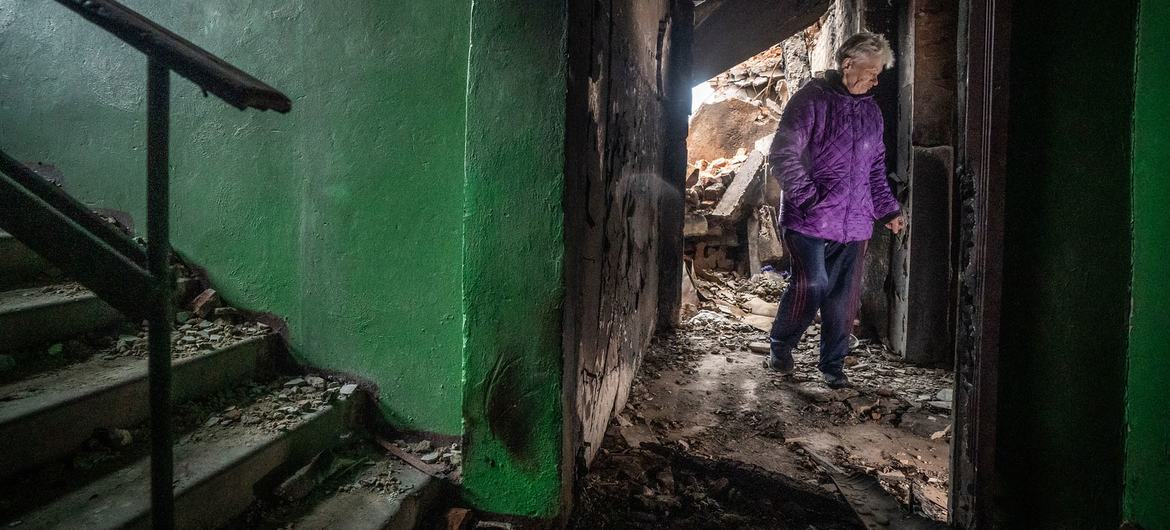
Ukraine: Countries must support resilient recovery to prevent ‘cascade’ of poverty, hunger
António Guterres was addressing a one-day international summit in Paris, with leaders from around 50 nations reportedly in attendance, where agreement was reached to deliver some €1 billion in new financing to help repair the energy grid, water systems and health facilities, damaged by Russian […]
HQ Report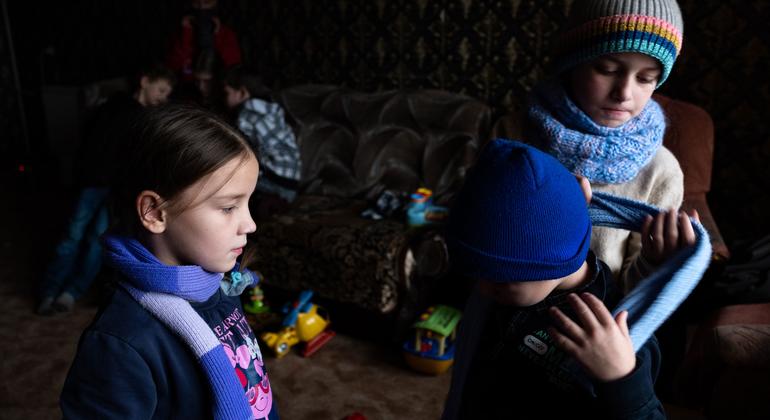
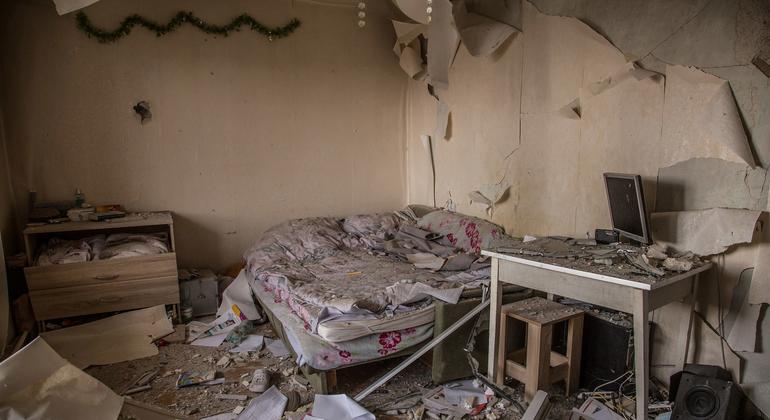
Ukrainian and Russian POWs tortured and ill-treated: OHCHR
Matilda Bogner, Head of the UN’s human rights monitoring mission in Ukraine, said that, over the past few months, her team had interviewed 159 prisoners of war – or POWs – both men and women, held by Russia, and 175 male prisoners of war held […]
HQ Report

Matilda Bogner, Head of the UN’s human rights monitoring mission in Ukraine, said that, over the past few months, her team had interviewed 159 prisoners of war – or POWs – both men and women, held by Russia, and 175 male prisoners of war held by Ukraine.
Ukraine gave the mission access to Russian POWs where they were being held. Russia did not, so interviews were conducted with Ukrainian POWs when they were released.
Beatings, dog attacks
Ukrainian POWs have said that they were frequently subjected to prolonged beatings, threats, electric shocks and dog attacks. Nine people are said to have died during such attacks in April this year.
Women POWs told interviewers that they were not subjected to physical violence but described being psychologically tormented by the screams of male POWs being tortured in nearby cells. Both men and women prisoners reported being subjected to various forms of sexual violence.
The vast majority of Ukrainian prisoners who were interviewed said that during their internment they were tortured and ill-treated.
Intimidation, humiliation
They said their treatment was not only used to coerce them to give military information or statements about alleged crimes but to intimidate and humiliate them on a daily basis.
POWs described being beaten, including with batons and wooden hammers, being kicked, and given electric shocks with tasers and a military phone known as TAPik.
Summary executions
Russian POWs, held by Ukraine, told interviewers of summary executions and several cases of torture and ill-treatment, mostly when they were captured, first interrogated, or moved to transit camps and places of internment. In some cases, they said they were punched and kicked in the face and body after surrendering and when they were interrogated.
In several cases, Russian POWs said they were stabbed or given electric shocks with the ‘TAPik’ phone by Ukrainian law enforcement officers or military personnel guarding them.
Accountability key
Ms Bogner said that states must treat all prisoners of war humanely at all times, from the moment they are captured until their release and repatriation, and that the prohibition of torture and ill-treatment is absolute, even in times of armed conflict.
She also said that accountability is key to deterring and preventing further violations, adding that the parties to the conflict have clear legal obligations to investigate and prosecute all allegations of violations of international humanitarian law in relation to the treatment of prisoners of war within their control.

Ukraine: UN convoy delivers vital aid to residents of Kherson
Aid workers brought food, water, hygiene kits, shelter materials and critical household items, such as bedding, thermal blankets and solar lamps, to more than 6,000 people in the city, which returned to Ukrainian control last Friday after Russian troops withdrew. Russian forces have occupied Kherson […]
HQ Report

Aid workers brought food, water, hygiene kits, shelter materials and critical household items, such as bedding, thermal blankets and solar lamps, to more than 6,000 people in the city, which returned to Ukrainian control last Friday after Russian troops withdrew.
Russian forces have occupied Kherson since March, capturing the city in the first weeks of the war. So far, it is the only regional capital to fall to the invaders.
‘Urgent support’
UN Humanitarian Coordinator, Denise Brown, said on Monday that “the people of Kherson are struggling to meet their basic needs, only adding to the trauma of having endured months of constant bombardments, being forced to flee their homes, and seeing their loved ones being killed or injured”.
She added that they needed urgent support “and we must act quickly to help them.”
The city faces a shortage of water and electricity, while markets are running low on food, and health facilities suffer a total lack medicines. Now that humanitarian aid is arriving in the city, medicine is being supplied to one major health centre sufficient to treat more than 1,000 patients over the next month.
The International Organization for Migration (IOM), UN refugee agency (UNCHR), the UN Children’s Fund (UNICEF) and the World Food Programme (WFP) all took part in Monday’s convoy.
More aid on the way
The humanitarian community will continue to mobilize resources and supplies over the coming days to expand their operations and bring more aid to people in all areas of the Kherson region.
In recent weeks, life-saving items have been delivered to more than 12,000 people in other towns and villages retaken by Ukraine in the Kherson region, including Novovorontsovka, Novooleksandrivka, Velyka Oleksandrivka and Vysokopillia.
So far this year, humanitarian organizations have reached 100,000 people in the region, most of them with cash assistance.
We stand with the people: Brown
“With the support of our partners, particularly the local organizations, I am confident that we will be able to do much more in the days and weeks ahead,” Ms. Brown said. “We must stand with the people of Kherson in their hour of need.”
The Ukrainian President, Volodymyr Zelensky, visited the city on Monday, and said that a “long and difficult path” lies ahead despite the liberation of Kherson from Russian control, according to news reports. He pledged that Ukraine is “moving forward”.

General Assembly adopts resolution on Russian reparations for Ukraine
Nearly 50 nations co-sponsored the resolution on establishing an international mechanism for compensation for damage, loss and injury, as well as a register to document evidence and claims. The General Assembly is the UN’s most representative body, comprising all 193 Member States. Ninety-four countries voted […]
HQ Report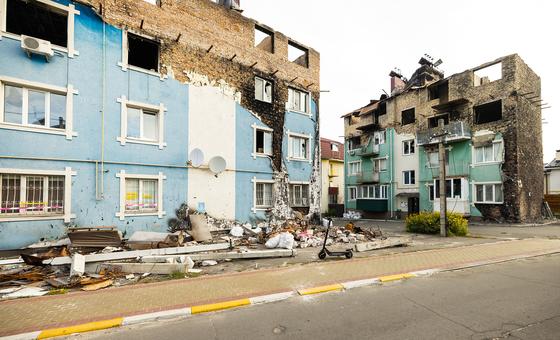

Nearly 50 nations co-sponsored the resolution on establishing an international mechanism for compensation for damage, loss and injury, as well as a register to document evidence and claims.
The General Assembly is the UN’s most representative body, comprising all 193 Member States.
Ninety-four countries voted in favour of the resolution, and 14 against, while 73 abstained.
The vote took place in the morning, and countries returned in the afternoon to explain their decisions.
Ukraine: Hold Russia accountable
In presenting the resolution, Ukrainian Ambassador Sergiy Kyslytsya used the biblical adage that “there is nothing new under the sun” as a motif throughout his remarks.
He insisted that Russia must be held accountable for its violations of international law.
“Seventy-seven years ago, the Soviet Union demanded and received reparations, calling it a moral right of a country that has suffered war and occupation,” he said.
“Today, Russia, who claims to be the successor of the 20th century’s tyranny, is doing everything it can to avoid paying the price for its own war and occupation, trying to escape accountability for the crimes it is committing.”
Carnage and compensation
Mr. Kyslytsya pointed out that Russia also supported the creation of the UN Compensation Commission (UNCC), established in 1991 following Iraq’s invasion and occupation of Kuwait.
The Commission completed its mandate in February, he reported, having paid out over $52 billion in reparations to victims.
The Ambassador outlined the impact of the Russian war on his country, including bombings targeting residential buildings and infrastructure, the demolition of nearly half of the power grid and utilities, massive displacement, and atrocities such as murder, rape, torture and forced deportations.
“This proposal is not about Russia alone. It will work for the benefit of all those who are being threatened now or might be threatened later by use of force,” he said.
Russia criticizes draft
Speaking before the vote, Russian Ambassador Vasily Nebenzya characterized the draft resolution as “a classic example” of a narrow group of States acting not on the basis of international law, but rather trying to consecrate something that is illegal.
He said countries backing the resolution were attempting to position the General Assembly as a judicial body, which it is not.
“These countries boast about how committed they are to the rule of law, but at the same time, they are flouting its very semblance,” he added, speaking in Russian.
No role for the UN
Mr. Nebenzya said the proposed reparations mechanism will be created by a group of countries that will decide how it functions.
“The UN will play no role in this process because the proposed mechanism is suggested to be created outside of the UN, and no one has any plans to account to the General Assembly for its activity,” he continued.
Furthermore, he had “no doubt” that the funding will come from frozen Russian assets, which total billions.
Western countries have long wanted to unfreeze these assets, he said, not to return them to their owner, or to spend them on helping Ukraine, “but rather so as to fund their own constantly growing weapons supplies to Kyiv, and covering the debts for the weapons already supplied.”
About the emergency special session
The General Assembly emergency special session began on 28 February, or just days after the start of the war in Ukraine.
This marks only the 11th time such a meeting has been held since 1950, in line with a resolution widely known as ‘Uniting for Peace’.
Resolution 377A(V) gives the General Assembly power to take up matters of international peace and security when the Security Council is unable to act due to unanimity among its five permanent members – China, France, the United Kingdom, the United States and Russia – who have the power of veto.
The current special session was convened after the Council voted in favour of the General Assembly meeting following Russia’s veto of a resolution that would have deplored the assault on Ukraine.

Ukraine: UN and partners provide life-saving aid to some 13.5 million
“Since February, aid workers have provided critical aid and protection services to some 13.5 million people across all regions of Ukraine”, Associate Spokesperson Stéphanie Tremblay told journalists at a regular briefing in New York. She added that more than 4.2 million people have received cash […]
HQ Report
“Since February, aid workers have provided critical aid and protection services to some 13.5 million people across all regions of Ukraine”, Associate Spokesperson Stéphanie Tremblay told journalists at a regular briefing in New York.
She added that more than 4.2 million people have received cash assistance over the past eight months and that markets are reopening, as the Government works to restore banking services in the Kharkiv and Kherson regions, where Ukraine has recently regained control.
Moreover, partners are also extending their cash programmes also in these areas.
Russian military commanders announced Wednesday that their forces were withdrawing from Kherson – it’s largest gain during the invasion – with the Ukrainian military reporting on Thursday that it had made rapid advances on two fronts to the outskirts of the southern city.
Health services hit hard
With hundreds of medical facilities across the country damaged, humanitarians are working to bolster health assistance even as the war continues to decimate health services.
“For example, this month, the UN Population Fund (UNFPA) is delivering 30 mobile clinics that will provide reproductive health services for women in at least 19 regions of Ukraine,” said Ms. Tremblay.
“Since the beginning of the war, we and our partners have provided health services to more than 8.6 million people”.
Meanwhile, as infrastructure damage has made it increasingly difficult for communities to access clean water, the UN and its partners continue to provide water and hygiene assistance, having reached 5.7 million so far.
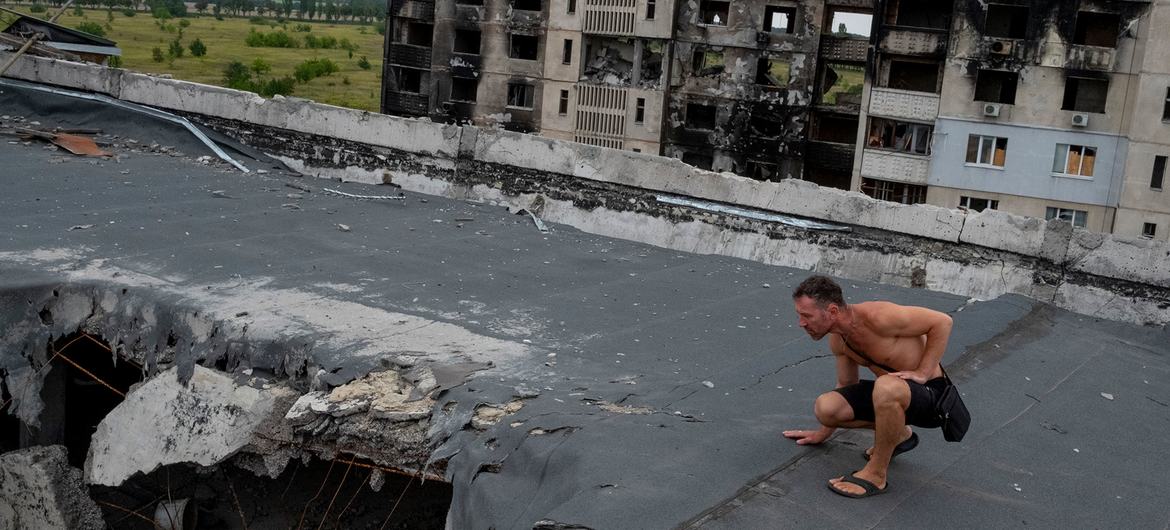
© UNICEF/Ashley Gilbertson
A man inspects damage on the roof of an apartment complex destroyed by artillery and air strikes in a Kharkiv suburb..
Donor support
The UN spokesperson attributed the scale up of aid to donor support, crediting them for providing more than 70 per cent of the $4.3 billion requested for aid operations.
“However, as the war continues to drive humanitarian needs in Ukraine, the international community’s support will be critical to ensure that aid organizations can continue supporting the people of Ukraine”, she reminded.
Mine contamination
Meanwhile, the UN humanitarian office, OCHA, expressed concerned over an increasing number of incidents involving mines and explosive ordnances – particularly in the recently regained Kharkiv region in the northeast.
At least five incidents of mines detonating or explosions causing deaths or injuries occurred during the first two days of this month, compared to four throughout the who second half of October.
While explosive ordnances have been responsible for hundreds of deaths, injuries or maiming since the beginning of the war, just on Tuesday, two people were killed and two others injured while repairing a road in Chuhuivskyi District, Kharkiv region.
Moreover, accidents involving farmers trying to get back to their land following Russian withdrawal, are becoming progressively more common.
Authorities say that since March, more than 150,000 explosive devices have already been removed and destroyed, but millions remain. Clearing landmines in Ukraine could take decades, the UN spokesperson said.

Türkiye: UN experts call for end to harassment of human rights defenders
“We have documented many cases where counter-terrorism legislation and other criminal provisions have been used to harass, arrest, detain and convict civil society actors in Türkiye, including Dr. Fincancı, on spurious grounds”, the experts said in a statement. Blurred charges On 26 October, Ms. Fincancı, […]
HQ Report

“We have documented many cases where counter-terrorism legislation and other criminal provisions have been used to harass, arrest, detain and convict civil society actors in Türkiye, including Dr. Fincancı, on spurious grounds”, the experts said in a statement.
Blurred charges
On 26 October, Ms. Fincancı, who helped develop UN reference standards on the investigation and documentation of torture cases, known as the Istanbul Protocol, was arrested at her home on unclear grounds.
Her detainment is believed to be in retaliation for her publicly calling for investigations into the alleged use of chemical weapons and associated deaths involving the Turkish military.
“Dr. Fincancı’s arrest appears part of a deliberate pattern of applying counter-terrorism legislation to discredit human rights defenders and organizations and interrupt their vital human rights and medical work”, they added.
Undermining freedoms
These types of attacks aim to shrink safe civic space, undermine the rule of law, and encroach upon fundamental freedoms and democratic values, according to the Human Rights Council-appointed Special Rapporteurs.
“Human rights defenders and medical practitioners’ ability to speak truth to power must be protected”, underscored the independent experts, stressing that exposing human rights violations is “one of the cornerstones of democratic societies”, and that exercising rights of freedom of expression and association, are “protected rights under international human rights law”.
“Detention pending investigation beyond an initial period of interview is an exceptional measure and must be subject to judicial authorization as to its continuing lawfulness and proportionality”, they reminded.
Call to Türkiye
The Special Rapporteurs urged the Turkish authorities to “immediately and unconditionally” release Ms. Fincancı as well as other civil society actors detained for politically motivated purposes.
They also advocated for access to fundamental safeguards and the protection of defenders mental and physical integrity – both in and outside of detention.
Fulfilling obligations
Since 1988, Türkiye has been a party to the UN Convention against Torture and Other Cruel, Inhuman or Degrading Treatment or Punishment.
After ratifying, States parties are obliged take all measures to prevent torture and similar ill-treatment or punishment, and to investigate and prosecute related crimes.
Threats of arrest and imprisonment and judicial intimidation cause high levels of distress and anxiety, which could amount to psychological inhumane or degrading treatment or punishment, in violation of international law.
And in 2003, Türkiye ratified the International Covenant on Civil and Political Rights, which prohibits arbitrary arrest or detention.
Call to take action
The UN experts have expressed their views on this case with the Government of Türkiye and requested the authorities to immediately take interim measures to protect the mental and physical integrity of Dr. Fincancı and to end the judicial harassment of those who defend the rights of others.
Special Rapporteurs are mandated to examine and report back on a specific human rights theme or a country situation. The positions are honorary and the experts are not paid for their work.
Click here for the names of the Special Rapporteurs who have signed the statement.

Sweden: Step up efforts to fight systemic racism, urge UN experts
While visiting the country from 31 October to 4 November, the members of the International Expert Mechanism gathered information on the existing legislative and regulatory measures for tackling racial discrimination. “The collection, publication and analysis of data disaggregated by race or ethnic origin in all […]
HQ Report
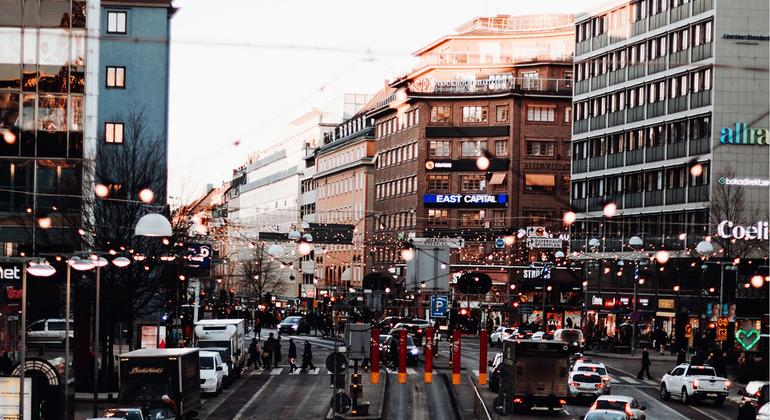
While visiting the country from 31 October to 4 November, the members of the International Expert Mechanism gathered information on the existing legislative and regulatory measures for tackling racial discrimination.
“The collection, publication and analysis of data disaggregated by race or ethnic origin in all aspects of life, especially regarding interactions with law enforcement and the criminal justice system, is an essential element for designing and assessing responses to systemic racism”, said Chair, Yvonne Mokgoro.
“Sweden needs to collect and use this data to fight systemic racism”.
Sweden should broaden the definition of safety – UN independent expert
Race data needed
Along with the Chair, Tracie Keesee and Juan Méndez held meetings and conducted interviews in Stockholm, Malmö, and Lund, with a focus on both good practices and challenges Sweden faces in upholding its human rights obligations on non-discrimination, in the context of law enforcement and the criminal justice system.
While the Mechanism understands the historical sensitivity surrounding racial classifications in the country, the experts said they were “deeply concerned” by Swedish authorities’ reluctance to collect data disaggregated by race.
“We heard that most of the population in Sweden generally has confidence in the police, yet most of the testimonies we received from members of racialized communities, spoke of fear of an oppressive police presence, racial profiling and arbitrary stops and searches”, said Ms. Keesee.
Restoring police trust
They met representatives from the Ministries of Justice, Employment, and Foreign Affairs as well as the National Council for Crime Prevention (Brå), Offices of the Parliamentary Ombudsman and Equality Ombudsman, and members of the Swedish Police Authority, Prison and Probate Services (Kriminalvarden).
“Sweden should broaden the definition of safety that does not rely exclusively on police response”, she stated.
“The police should focus on strategies to restore their trust among the communities they serve, including through diversifying its staff to reflect Sweden’s true multicultural society”, added the expert.
The Mechanism also met members of the Swedish National Human Rights Institution, civil society representatives, and affected communities, as well as members of the Swedish Police Authority.
Prison visits
Moreover, the Mechanism visited police detention and pre-trial detention centres in Stockholm and Malmö, where Mr. Mendez raised concern over “an excessive recourse to solitary confinement”.
“More generally, we are also concerned that Sweden may be addressing legitimate security challenges, including growing gang criminality, through a response which focuses on over policing, surveillance, and undue deprivation of liberty”, he added.
Mr. Mendez called on Sweden to “fully comply with the Nelson Mandela Rules – formerly the UN Standard Minimum Rules for the Treatment of Prisoners – and to privilege alternatives to detention”.
Filing a report
The Mechanism has shared its preliminary findings with the Government and will draft a report to be published in the coming months and presented to the Human Rights Council.
“We will be taking with us good practices that we will highlight in our final report including on the police training, and resources allocated to the investigation of hate crimes”, Ms. Mokgoro said.
Independent experts are appointed by the Geneva-based UN Human Rights Council to examine and report back on a specific human rights theme. The positions are honorary and they are not paid for their work.

Europe hotting up more than twice global average: WMO
The State of the Climate in Europe report, produced jointly with the European Union’s Copernicus Climate Change Service, focused on 2021. It provides information on rising temperatures, land and marine heatwaves, extreme weather, changing precipitation patterns, and retreating ice and snow. Glacier melt The report […]
HQ Report
The State of the Climate in Europe report, produced jointly with the European Union’s Copernicus Climate Change Service, focused on 2021.
It provides information on rising temperatures, land and marine heatwaves, extreme weather, changing precipitation patterns, and retreating ice and snow.
Glacier melt
The report says that between 1991 and 2021, temperatures in Europe warmed significantly, at an average rate of about +0.5 °C per decade. As a result, Alpine glaciers lost 30 metres in ice thickness from 1997 to 2021.
The Greenland ice sheet is melting and contributing to accelerating sea level rise. In summer 2021, Greenland saw a melt event and the first ever recorded rainfall at its highest point, Summit station.
Deadly heat
In 2021, high impact weather and climate events led to hundreds of fatalities, directly affected more than half a million people and caused economic damages exceeding $50 billion. About 84 per cent of the events were floods or storms.
As the climate continues to change, European people’s health is expected to be impacted in many ways, including death and illness from increasingly frequent extreme weather events.
Increases in zoonoses, where diseases are transmitted to humans from animals, are also expected along with food, water and vector-borne diseases, and a rising incidence of mental health disorders.
The deadliest extreme climate events in Europe come in the form of heatwaves, particularly in western and southern countries.
The combination of climate change, urbanization and population ageing in the region creates, and will further exacerbate, vulnerability to heat.
Success stories
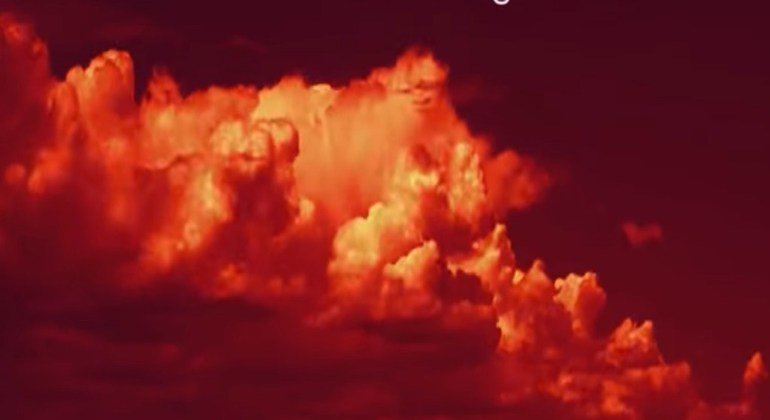
WMO Video screen shot
However, the report indicates that it’s not all bad news. A number of countries in Europe have been very successful in cutting greenhouse gas emissions. In particular, in the European Union (EU) greenhouse gas emissions decreased 31 per cent between 1990 and 2020, with a net 55 per cent reduction target for 2030.
Europe is also one of the most advanced regions in cross-border cooperation in climate change adaptation, in particular across transnational river basins.
It is one of the world leaders in providing effective early warning systems, with about 75 per cent of people protected. Heat-health action plans have saved many lives from extreme heat.
‘Live picture of a warming world’
But the challenges are formidable, said WMO Secretary-General Petteri Taalas: “Europe presents a live picture of a warming world and reminds us that even well-prepared societies are not safe from impacts of extreme weather events. This year, like 2021, large parts of Europe have been affected by extensive heatwaves and drought, fuelling wildfires. In 2021, exceptional floods caused death and devastation.”
“On the mitigation side, the good pace in reducing greenhouse gases emissions in the region should continue and ambition should be further increased. Europe can play a key role towards achieving a carbon neutral society by the middle of the century to meet the Paris Agreement,” said Mr. Taalas.
The report, issued ahead of the annual UN Climate Change Conference COP27, in Sharm-El Sheikh, includes input from national meteorological and hydrological services, climate experts, regional bodies and UN partner agencies.

UN chief ‘deeply concerned’ by stalled Black Sea Grain Initiative
On Sunday, UN Spokesperson Stéphane Dujarric said, in a statement for the Secretary-General, that Mr. Guterres has decided to delay his departure for the Arab League Summit in Algiers by a day to focus on the issue. Following Russia’s invasion of Ukraine in late February […]
HQ Report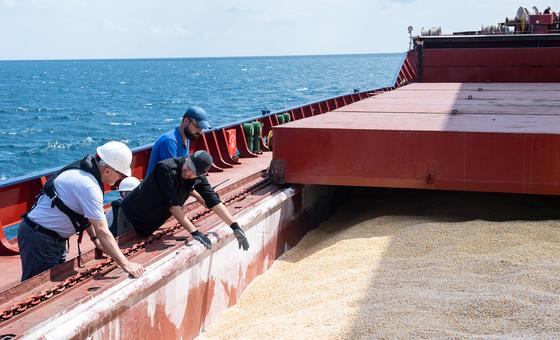

On Sunday, UN Spokesperson Stéphane Dujarric said, in a statement for the Secretary-General, that Mr. Guterres has decided to delay his departure for the Arab League Summit in Algiers by a day to focus on the issue.
Following Russia’s invasion of Ukraine in late February 2022, mountains of grains built up in silos, with ships unable to secure safe passage to and from Ukrainian ports, and land routes were unable to compensate.
This contributed to vertiginous rises in the price of staple foods around the world. Combined with increases in the cost of energy, developing countries were pushed to the brink of debt default and increasing numbers of people found themselves on the brink of famine.
The Initiative was due to run out in the second half of November, but there was an option to extend it, if all parties, including Russian and Ukraine, agree.
Millions saved from extreme poverty
The deal was demonstrably successful in bringing down prices, allowing millions of tonnes of grain to be safely transported from Ukrainian ports. By September, Rebecca Grynspan, the head of the UN trade body, UNCTAD, and Amir Abdulla, the UN Coordinator for the Black Sea Grain Initiative, could proudly announced that prices had come down five months in a row, and that the Food Price Index, which measures the monthly change in international prices of a basket of food commodities, had decreased nearly 14 per cent from its March peak.
According to UN estimates, the Initiative has indirectly prevented some 100 million people from falling into extreme poverty.
However, on Saturday Russia announced that it was suspending its involvement in the deal, citing an attack the same day on ships in the Ukrainian port of Sevastopol in the Crimean peninsula, which was annexed by Russia in 2014.
The move reportedly took traders by surprise, and raised fears of another steep rise in food prices. Arif Husain, Chief Economist at the World Food Programme (WFP), reportedly warned that Russia’s decision poses a danger to a large number of countries, and should be resolved as soon as possible.
Mr. Dujarric said that the Secretary-General is continuing to engage in intense contacts aimed at ending the Russian suspension of its participation in the Initiative.
This engagement, he explained, also aims at the renewal and full implementation of the initiative to facilitate exports of food and fertilizer from Ukraine, as well as removing the remaining obstacles to the exports of Russian food and fertilizer.

UN chief reaffirms support for deals to ensure export food and fertilizer from Ukraine and Russia
The Black Sea Grain Initiative, an agreement brokered by the UN and Türkiye in July, which was set up to reintroduce vital food and fertilizer exports from Ukraine to the rest of the world, is due to run out in the second half of November, […]
HQ Report

The Black Sea Grain Initiative, an agreement brokered by the UN and Türkiye in July, which was set up to reintroduce vital food and fertilizer exports from Ukraine to the rest of the world, is due to run out in the second half of November, but it can be extended, if all parties, including Russian and Ukraine, agree.
In a statement released on Friday, Mr. Guterres promised that the UN is continuing its active and constant engagement with all parties towards that goal. “We underline the urgency of doing so to contribute to food security across the world”, he said, “and to cushion the suffering that this global cost-of-living crisis is inflicting on billions of people.”
“If food and fertilizers do not reach global markets now, farmers will not have fertilizers at the right time and at a price they can afford as the planting season begins, endangering crops in all regions of the world in 2023 and 2024, with dramatic effect on food production and food prices worldwide. The current crisis of affordability will turn into a crisis of availability.”
Mr. Guterres reiterated the positive impacts of the Black Sea Grain Initiative so far: since it was signed, exports of grain and other food products – which are closely monitored by the Joint Coordination Centre, comprising representatives from the Russian Federation, Türkiye, Ukraine and the UN – have surpassed nine million tonnes.
It has also contributed to the lowering of the price of wheat and other commodities, which had soared following Russia’s invasion of Ukraine: the FAO Food Index, which measures the monthly change in international prices of a basket of food commodities, has declined for seven months in a row and, according to UN estimates, has indirectly prevented some 100 million people from falling into extreme poverty.
The UN chief urged all parties to make every effort to renew the Black Sea Grain Initiative and implement both agreements to their fullest, including the expedited removal of any remaining impediments to Russian grain and fertilizer exports.
“Governments, shipping companies, grain and fertilizer traders and farmers all over the world are now looking for clarity on the future”, he declared.
